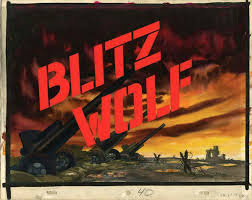Learning Targets: 11-12R1: I can cite strong and thorough textual evidence to support analysis of what the text says
explicitly/implicitly and make logical inferences, including determining where the text is
ambiguous; develop questions for deeper understanding and for further exploration.
11-12R4: I can determine the meaning of words and phrases as they are used in a text, including figurative and
connotative meanings. I can analyze the impact of specific word choices on meaning, tone, and mood,
including words with multiple meanings. Analyze how an author uses and refines the meaning of
technical or key term(s) over the course of a text
I think we have sufficiently established how satire can help to make people aware of societal and political flaws. Today, however, we are going to switch it up and put the satire in the hands of the government and politicians, in this case the military and Walt Disney.
To begin, please watch the following
documentary produced by the US government
in World War II.
documentary produced by the US government
in World War II.
Blitz Wolf (10 minutes)
Assignment: respond to the following prompt
in approximately 150 words.
Please send along by midnight tonight, in order to
receive full credit, unless your receive extended time.
1. Incorporating your knowledge of US history, what
was the purpose of the film? Make sure to
reference specific scenes and techniques.
Review of satirical techniques:
- 1. parody-a piece of writing, music, etc., that
- imitates the style of someone or something else
- in an amusing way
- 2. burlesque-a play, story, novel, etc., thatmakes a serious subject seem funny orridiculous; a metaphor in which the figurativecomparison is exceptionally comic, grotesque, orexaggerated.
3. exaggeration- to think of or describe
something as larger or greater than it really is - 4 juxtaposition-the act of placing two things next to each other
- 5. analogy- that if two or more things agree with one another in some respects they will probably agree in others
- 6. comparison-the act of looking at things to see how they are similar or different
- 7. double entendre-
- ambiguity of meaning arising from language that tends itself to more than one interpretation

No comments:
Post a Comment